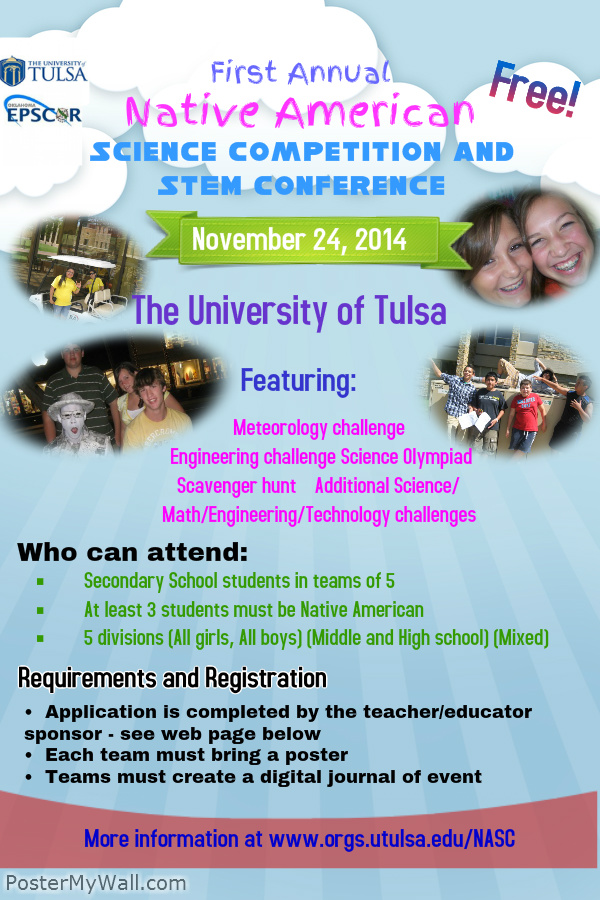
Register for the Native American Student STEM Competition & Teacher Conference
The 1st Annual Native American STEM Competition and Teacher Conference will be held at The University of Tulsa in Tulsa, Oklahoma. The Student Competition and Teacher Conference will take place concurrently on Monday, November 24th, 9:00 am - 4:45 pm.
Student Competition
School teams (five students each) will compete against other school teams in various STEM (Science, Technology, Engineering, and Mathematics) activities. Each team must be comprised of a majority of Native American students. Teams must have a teacher/educator sponsor.The competition is comprised of secondary student teams competing in one of three categories:
- All Girls teams (middle or high)
- All Boys teams (middle or high)
- Co-ed teams (mixed ages or gender)
During the day teams will be competing in a variety of challenges. Some of these include:
- Scavenger Hunt
- Physics/Geology challenge
- Meteorological adventure
- Science Olympiad
- Engineering Activities
Awards will be given to the winning teams in each division.
The students will be supervised by organization teachers, graduate and undergraduate students throughout the events.
Registration for the competition is online. Teachers must register their teams. There is no charge for the event as it is fully funded by EPSCoR and The University of Tulsa.
Breakfast snacks and lunch will be provided.
Teacher Conference
While the students are competing, the teachers will be participating in a STEM-focused conference. Only teacher/educator/sponsors of the teams may participate in the conference.
Teachers/Sponsors do not need to register for this conference - All sponsors who bring a team are automatically registered.
There will be five sessions, both hands-on and group discussions. Real-world topics relating to STEM for Oklahoma students will be the focus.
Teachers can earn one hour graduate credit or professional development.
There is no charge for the teachers' portion of the event, either, as the event is fully sponsored by EPSCoR and The University of Tulsa.

